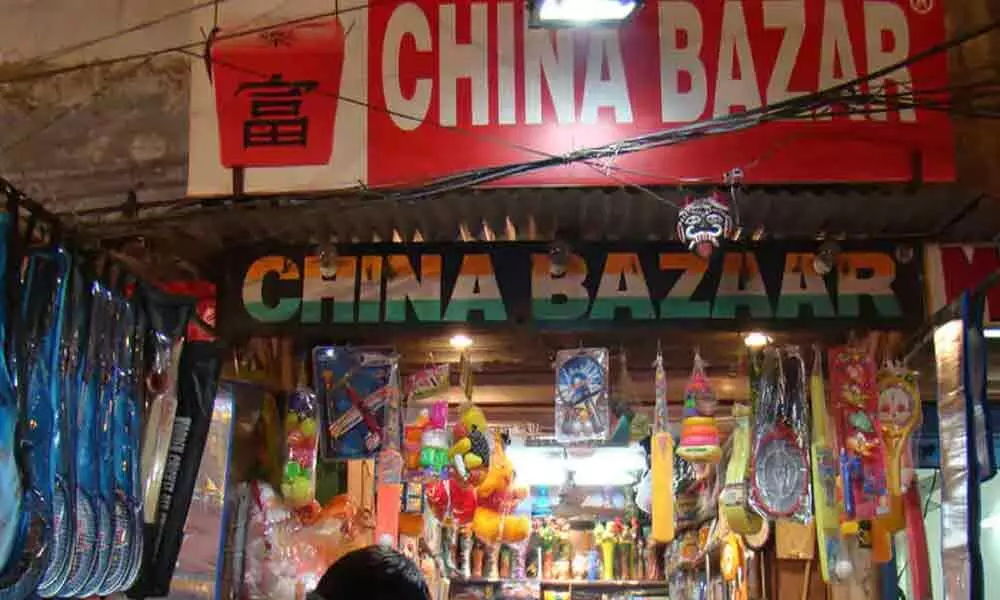Can we identify what's Chinese and what's not? Is Boycott Practical?
 India Boycott Chinese products
India Boycott Chinese productsThe reality is the business relationship between India, and China is too big -- and too complicated -- for any boycott.
In the wake of the Ladakh tensions, the rhetoric in India is growing over Chinese products. The reality is the business relationship between India, and China is too big and too complicated for any boycott.
Considering China's massive investments in India, recognising what's Chinese and what's not and finding a better alternative is a very tough job.
China's Presence in Tech Space
In recent times in tech space alone, China-linked investments have seen a rise.
As per Gateway House report, a think tank linked with the Indian Council on Global Relations estimates $4 billion of Chinese tech investment in Indian startups.
Almost 18 of India's top 30 unicorns (startups valued over $1 billion), if noted most of them tech-driven, are now Chinese funded. The report lists 92 major startups in India funded by the Chinese that was published in February.
Main Chinese Investments
Leading Chinese firms involved in Indian businesses via strategic investments are Alibaba, Tencent and ByteDance. The Alibaba Group alone has strategic investments in Big Basket ($250 million), Paytm.com ($400 million), Paytm Mall ($150 million), Zomato ($200 million) and Snapdeal ($700 million).
Likewise, another Chinese group, Tencent Holdings has its investment in Indian firms like Byju's ($50 million), Dream11 ($150 million), Flipkart ($300 million), Hike Messenger ($150 million), Ola ($500 million) and Swiggy ($500 million).
Complex Business Partnerships
Chinese firms are not the exclusive owner of these platforms. Majority of the control in most of these companies is owned by Indian and non-Chinese investors, making it difficult to classify them as Chinese or a non-Chinese company.
Experts say the main reasons why foreign investors primarily fund Indian startups is due to the significant initial risk involved in creating a market.
"Most Indian venture-capitalist financiers are wealthy individuals/family offices and cannot make the $100-million commitments needed to finance startups through their early losses. For instance, Paytm incurred a loss of Rs 3,690 crore in FY19 while Flipkart lost Rs 3,837 crore over the year. That leaves Western and Chinese investors as dominant players in the Indian startup space," the Gateway House report notes.
Other Popular Chinese Platforms
Another popular Chinese product in India is TikTok, with more than 200 million subscribers that left behind YouTube in the Indian market.
Beijing-based technology firm ByteDance is the parent company of TikTok. Recently the group has been in the news for allegedly censoring anti-Chinese content in India.
As per a 2019 report by mobile data and analytics platform, App Annie, "50 per cent of top app downloads in India were those with Chinese investments, such as UC Browser, SHAREit, TikTok, and Vigo Video, etc.".
The Chinese Dominance in Hardware
The Chinese firms' dominance is even more in hardware space. As per a Counterpoint Research, a global industry analysis firm, "the market share of Chinese brands in the Indian smartphone market reached a record 66 per cent during the first quarter of 2019".
Chinese phone brands Xiaomi, Vivo and Oppo, have become Indian household names. Though, Xiaomi, one of the leading Chinese phone companies, has announced that it is creating some of its models in India.
Multiple Investment Routes
With the complexities of the growing investment, it is going to be challenging to identify a Chinese brand.
According to the Gateway House report, some Chinese funds route their investments in India via offices located in Singapore, Hong Kong, Mauritius, etc. "For example, Alibaba's investment in Paytm was by Alibaba Singapore Holdings Pvt. Ltd. These don't get recorded in India's government data as Chinese investments," the report mentioned. Many China-made electronic items, home utility products and hardware that is sold in the open market don't even have any brand name with which we can recognise.














